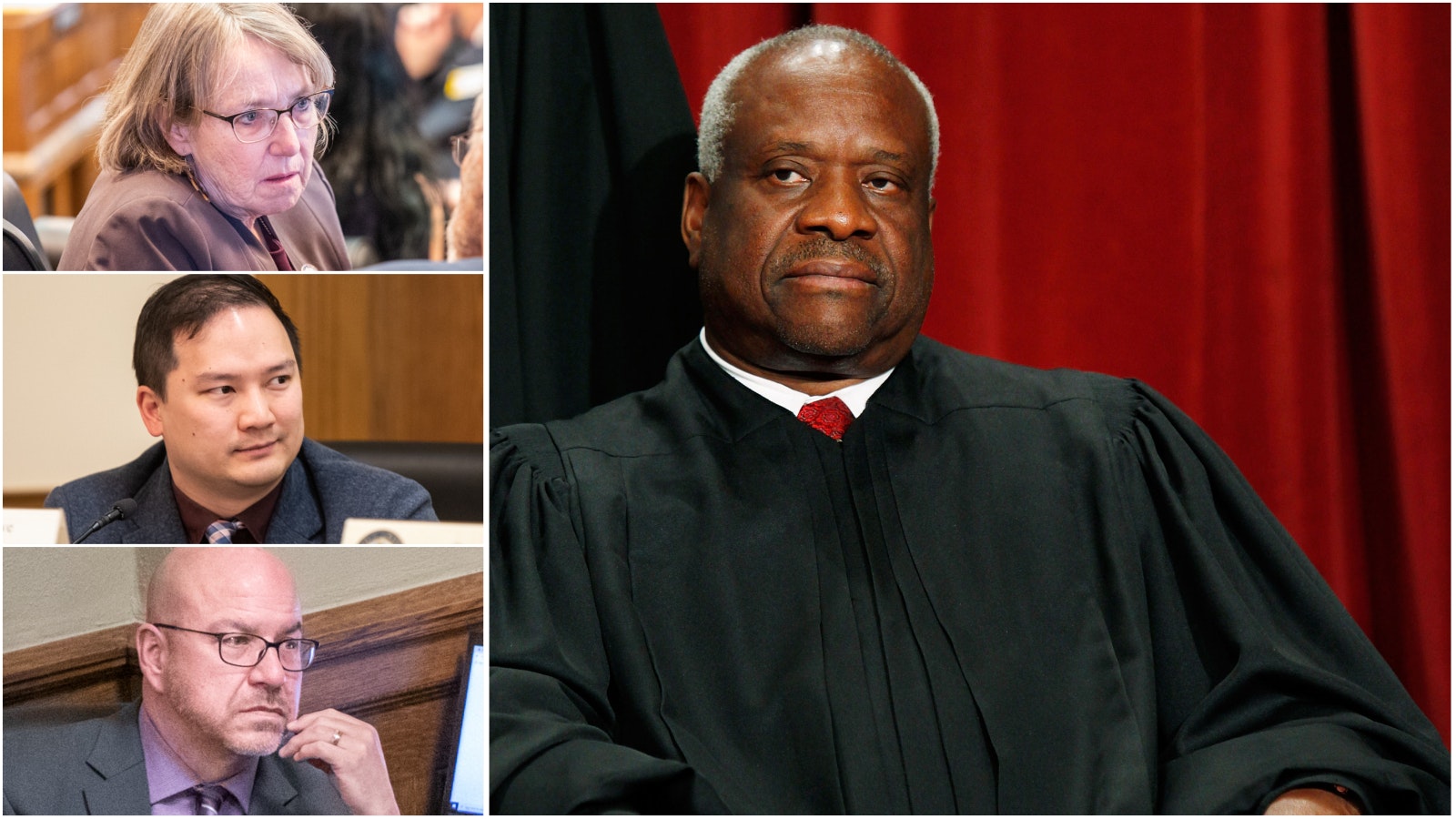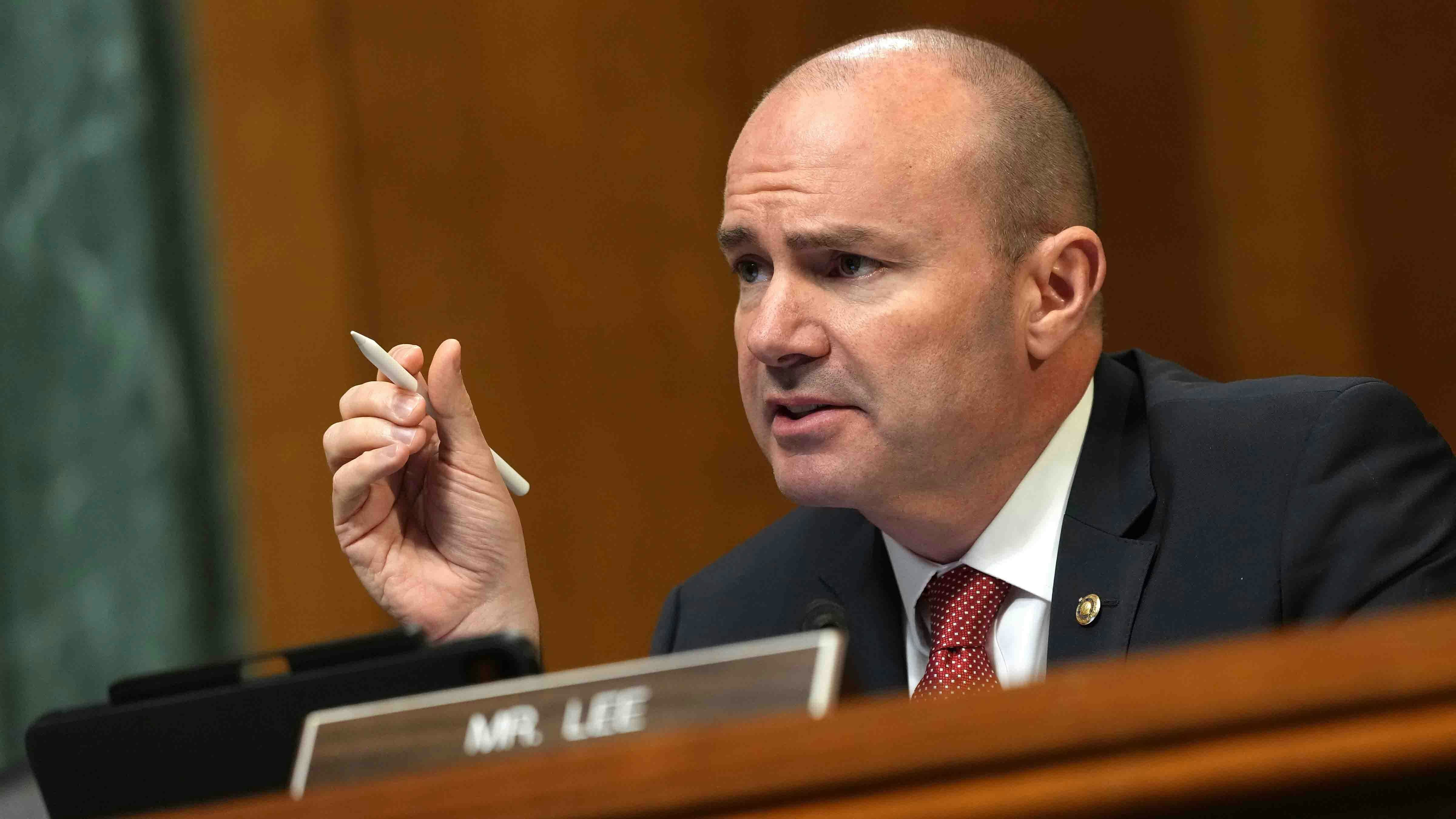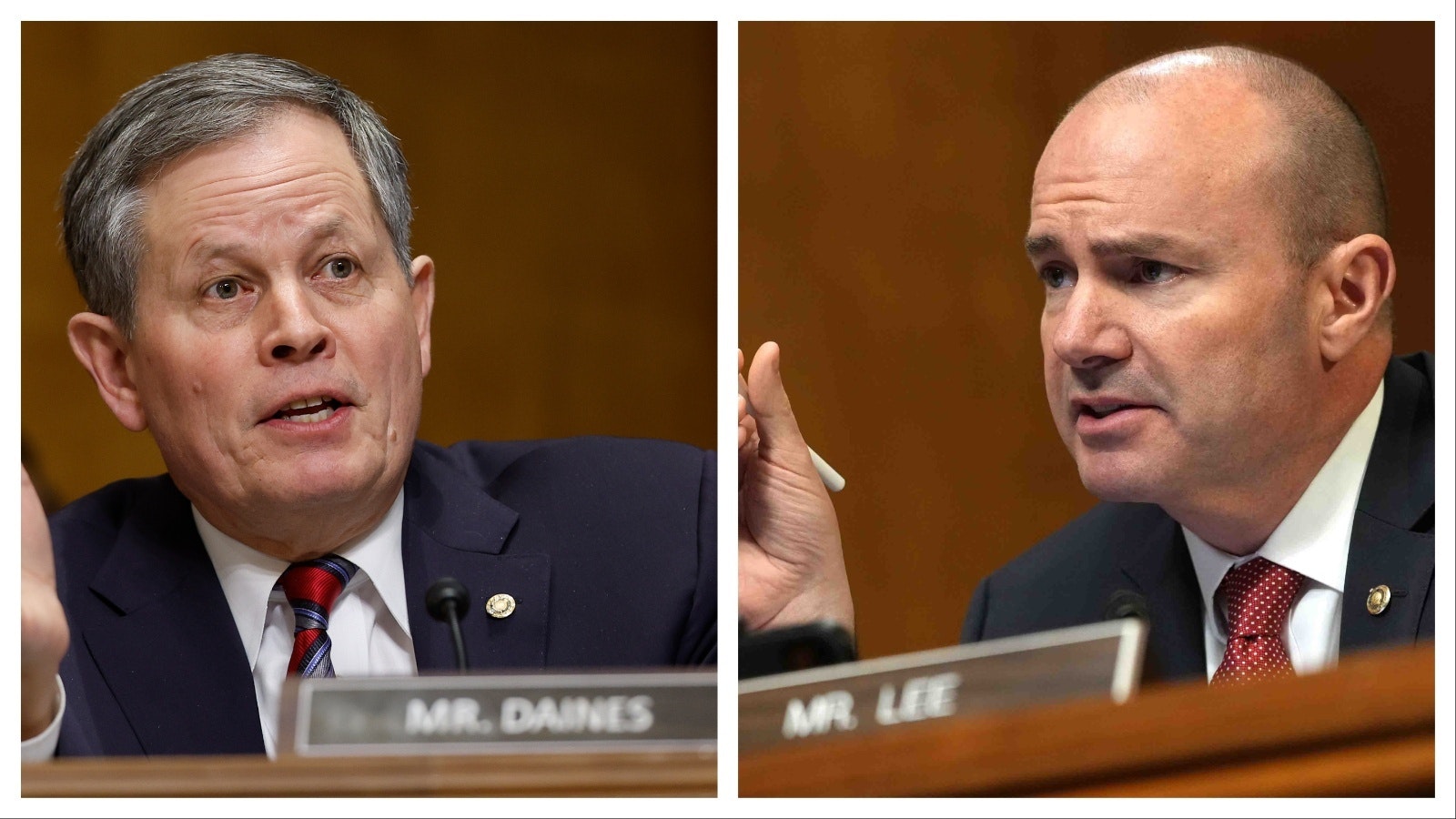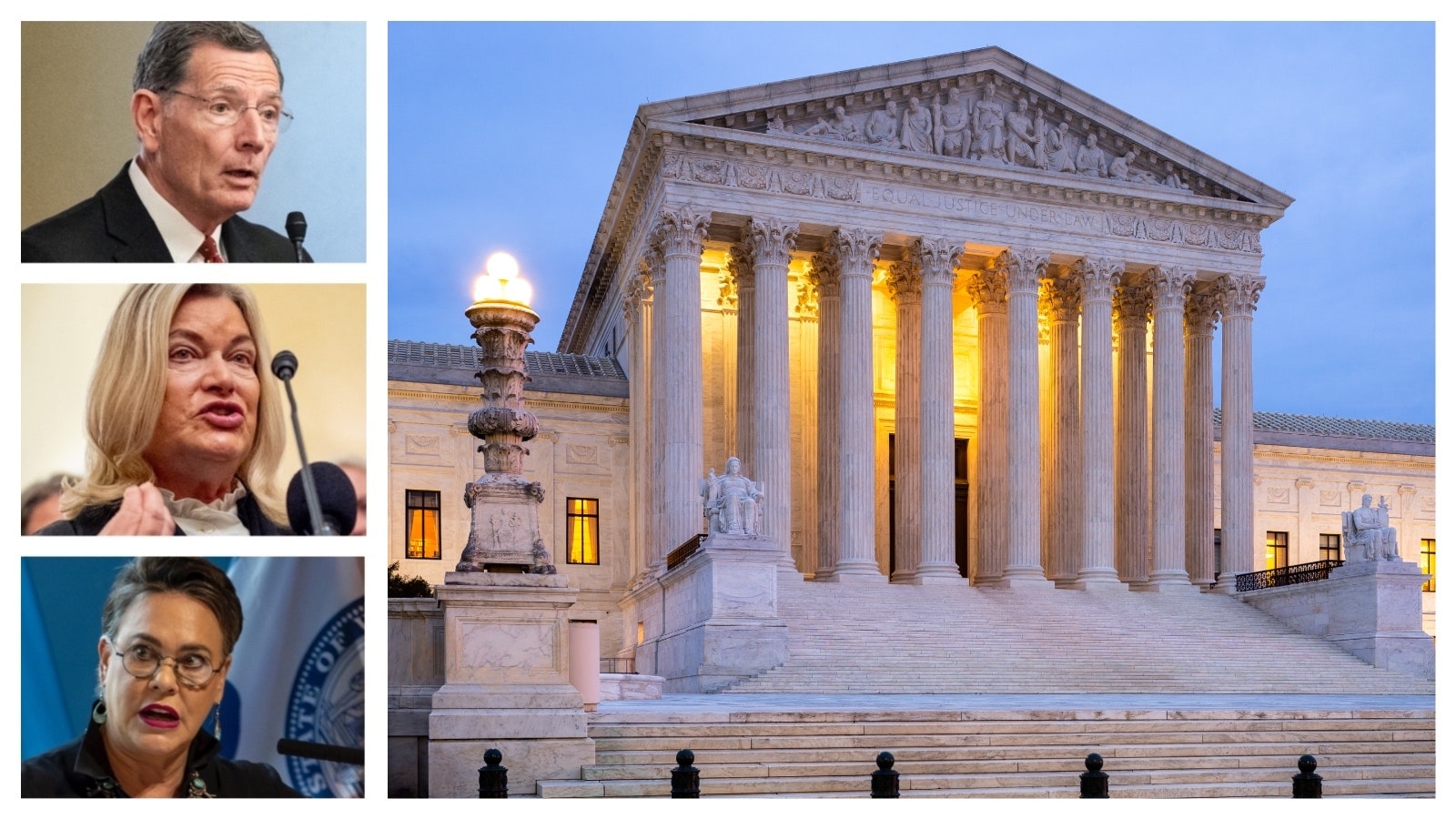By Clair McFarland, Cowboy State Daily
clair@cowboystatedaily.com
Language contained in U.S. Supreme Court’s decision overturning Roe vs. Wade has state Democratic lawmakers worried about the future of other issues, such as gay marriage and the right to obtain contraceptives.
In his concurring opinion on Friday’s ruling, U.S. Supreme Court Justice Clarence Thomas announced that the rationale putting abortion access decisions in the hands of state governments could, in future cases, apply to other court precedents. He specifically mentioned landmark cases guaranteeing the right to engage in private, consensual sex acts; the right to same-sex marriage, and the right of married people to obtain contraceptives.
“There’s this concern that many individual rights are threatened by this decision,” said Rep. Andy Schwartz, D-Jackson. “And I share those concerns.”
Rep. Chad Banks, D-Rock Springs, echoed Schwartz.
“Justice (Thomas) said abortion protection is not outlined specifically in the Constitution. If you take that logically to the next step, neither are LGBTQ rights,” said Banks.
‘Between a Male and a Female
Same-sex marriage became legal nationwide following Obergefell vs. Hodges, a 2015 Supreme Court case affirming the practice as a fundamental right. However, Wyoming legalized it earlier, in 2014, at the direction of a federal court that struck down gay-marriage bans in Utah and Oklahoma as well.
Although currently legal in Wyoming due to court precedent, state law defines marriage as a civil contract between a man and a woman.
Rep. Cathy Connolly, D-Laramie, attempted three separate times between 2011 and 2014 to change the state’s definition of marriage to a civil contract between two natural persons, and again in 2018 and 2019.
Substantive Due Process
Thomas did not say that gay marriage or any other rights are bound to be overturned. But his reasoning opened the possibility the Supreme Court might reconsider rights that were once considered fundamental under the Fourteenth Amendment – such as abortion and gay marriage – and decide if the framers of the Constitution intended those as inherent rights.
Neither abortion nor gay marriage are listed as rights in the Constitution or its amendments.
“We could consider whether any of the rights announced in this Court’s substantive due process cases are ‘privileges or immunities of citizens of the United States’ protected by the Fourteenth Amendment,” Thomas wrote. “To answer that question, we would need to decide… whether the Privileges and Immunities Clause protects any rights that are not enumerated in the Constitution and if so, how to identify those rights.”
The doctrine of substantive due process holds that certain personal rights are protected by the Fifth and Fourteenth amendments to the U.S. Constitution, even if they are not specifically listed in the Constitution as protected rights.
Thomas, however, said that for Supreme Courts of the past to claim certain rights as fundamental when they aren’t specifically listed in the Constitution is a form of “judicial policymaking,” which in casual political parlance often is called “legislating from the bench.”
“(The Court) invoked an ethereal ‘right to define one’s own concept of existence, of meaning,” wrote Thomas.
He expressed sharp disagreement with the doctrine, especially relating to abortion, calling it a stretch from the Constitution’s intent:
“That 50 years have passed since Roe, and abortion advocates still cannot coherently articulate the right (or rights) at stake proves the obvious: The right to abortion is ultimately a policy goal in desperate search of a constitutional justification,” he wrote.
‘The Whole Idea – Just Gone’
It’s absolutely likely that someone now will bring a court case challenging the various rights placed in limbo, according to Lander-based attorney Jon Gerard.
“Someone will,” said Gerard after reading the concurrence. “(Thomas) is opening the door… just to get rid of substantive due process entirely. The whole idea – just gone.”
Gerard quipped that some law school textbooks are in for a complete makeover.
Different rights have different levels of protection, and for rights attributed to the Constitution and its amendments – as abortion formerly was – the highest level of protection from governmental infringement applies.
That standard is called strict scrutiny.
“It’s so important to have strict scrutiny for things like privacy and bodily autonomy, things like this,” said Gerard.
Similar to Julie Burkart, who is working to open an abortion clinic in Casper, Gerard theorized that the Wyoming Constitution may have more specific language that could be mobilized to preserve abortion access and the other rights formerly protected under substantive due process.
Codifying abortion as a federal right in a U.S. Constitution amendment, however, “just never will pass,” said Gerard. The nation is so evenly polarized in general, the two-thirds ratification for adding amendments is hard to reach on partisan issues, he added.
Probably Not Wyoming
Gerard also said he doubted that the Wyoming Legislature would specifically enact constitutionally uncertain laws, like a ban on gay marriage, in order to make the current Supreme Court change its earlier and less fundamental precedents.
But other states might.
“I’m sure other states will start challenging that,” he said. “They could very easily enact a law in any state saying gay marriage is now illegal in our state, or contraceptives are now illegal or whatever. There are a ton of (constitutionally) unenumerated rights.”
Procreation
Schwartz said the right to obtain contraceptives, specifically, should be safeguarded following the court’s decision, since overturning Roe vs. Wade means some women may have difficulties obtaining abortion.
Wyoming is slated to outlaw abortion in less than a month, but Colorado is expected to still offer the procedure.
Schwartz clarified that he did not know if Wyoming lawmakers would push to outlaw contraceptive use or any other rights that may be relegated to the states in the event of a court challenge.
A handful of Republican legislators on Wednesday told Cowboy State Daily they absolutely would not outlaw contraceptives; but they were split on the gay marriage issue.
Caucus
The Wyoming Democratic Caucus, that is, every Democratic delegate to the state’s Legislature, on Friday dispatched a general statement condemning the overturning Roe vs. Wade.
But in an apparent reference to Thomas’ constitutional reasoning, the group also bemoaned what it saw as a deterrent to LGBTQ youth looking to settle in Wyoming.
“(This) signals to… women and LGBTQ youth that you are not welcome here,” said the statement.





